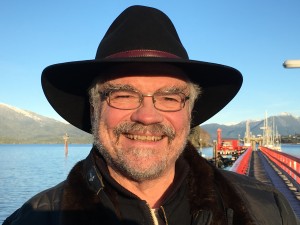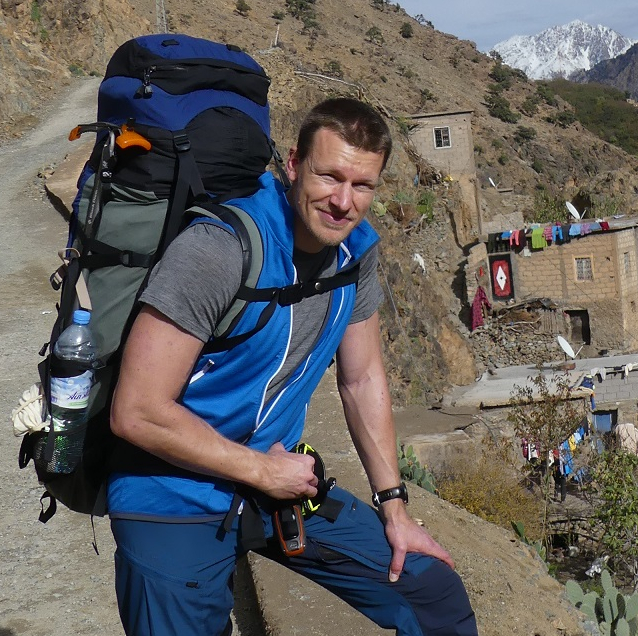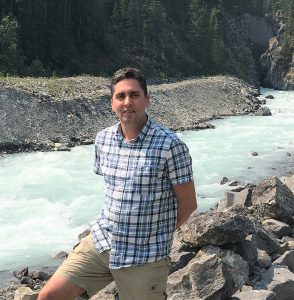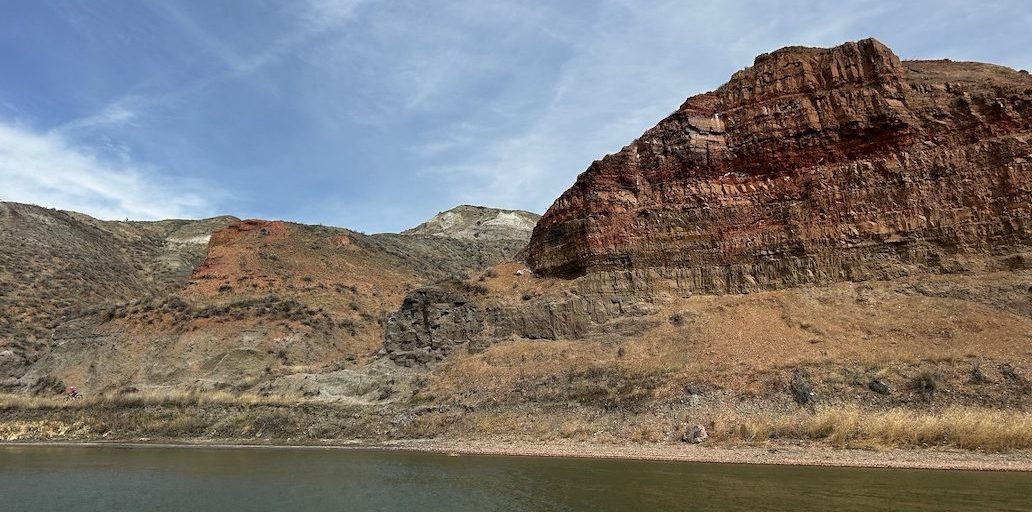The Agricultural Greenhouse Gases Program (AGGP) is a 5-year research study that aims to evaluate the carbon sequestration and storage potential of Adaptive Multi-Paddock Grazing (AMP) compared to a spectrum of alternative grazing systems. Biophysical and grazing management data have been collected from 60 livestock‐grazing ranches over the past two field seasons by an interdisciplinary team of researchers at the University of Alberta. Measured variables include soil carbon stocks and accrual rates, greenhouse gas emissions and albedo, water infiltration rates, vascular vegetation composition and primary production (standing crop biomass) and diversity, microbial community and function, and avian biodiversity. A project summary can be downloaded here: AGGP_Grazing_Project_Summary
This collaborative research project features an interdisciplinary team of scientists from the UofA and partner organisations.
Principal Investigator
Prof. Mark S. Boyce –  Professor Boyce holds an endowed chair at the University of Alberta as the Alberta Conservation Association Chair in Fisheries & Wildlife. He was educated at Iowa State and Yale, and was a NATO Postdoctoral Fellow at Oxford. He has held previous faculty appointments at the University of Wyoming and the University of Wisconsin. His research focuses on ecological models with implications for conservation. Dr. Boyce sits on the Board of Directors for the Alberta Conservation Association and Safari Club International, and is an editor for PLoS One, the world’s largest scientific periodical. He is author of over 300 peer-reviewed publications and 7 books including the edited volume Ecosystem Management (2007, Yale Univ. Press). He was named International Conservationist of the Year in 2007 by SCI, was a Killam Professor in 2012, received the ASTech Award for Outstanding Leadership in Alberta Science in 2014, and was elected to the Royal Society of Canada in 2014. In 2013 his Montane Research Program was given an Emerald Award by the Province of Alberta. UofA, ResearchGate
Professor Boyce holds an endowed chair at the University of Alberta as the Alberta Conservation Association Chair in Fisheries & Wildlife. He was educated at Iowa State and Yale, and was a NATO Postdoctoral Fellow at Oxford. He has held previous faculty appointments at the University of Wyoming and the University of Wisconsin. His research focuses on ecological models with implications for conservation. Dr. Boyce sits on the Board of Directors for the Alberta Conservation Association and Safari Club International, and is an editor for PLoS One, the world’s largest scientific periodical. He is author of over 300 peer-reviewed publications and 7 books including the edited volume Ecosystem Management (2007, Yale Univ. Press). He was named International Conservationist of the Year in 2007 by SCI, was a Killam Professor in 2012, received the ASTech Award for Outstanding Leadership in Alberta Science in 2014, and was elected to the Royal Society of Canada in 2014. In 2013 his Montane Research Program was given an Emerald Award by the Province of Alberta. UofA, ResearchGate
Senior Research & Management Team
Prof. Edward Bork – Edward Bork is a professor of rangeland ecology in the Department of Agriculture, Food and Nutritional Science (AFNS) and has 25 years of experience in rangeland ecology, grazing management and agroforestry research, as well as undergrad and graduate teaching. Bork has worked on various research topics, including basic and applied rangeland ecology, grazing systems, range improvements, integrated weed control, riparian management, climate change impacts, and agroforestry. The latter has included a fundamental study on the benefits of silvopastoral systems in Alberta, examination of the impact of woodland encroachment on grassland production, assessment of the long-term benefits of aspen control, and currently, strategies for managing livestock grazing for deciduous and conifer forest regeneration. UofA, RRI, ResearchGate
Assoc. Prof. Cameron Carlyle – Cameron Carlyle is an assistant professor of rangeland ecology in the Department of Agriculture, Food and Nutritional Science at the University of Alberta. Cameron was trained as a community and ecosystem ecologist and while his expertise lies in plant ecology his research has broadened to examine interactions with ecosystems. In particular, his research is focused on the effects of cattle and climate change on grassland ecosystems and how impacts on the plant community interact with other organisms or processes. Cameron is currently leading two projects examining the effect of grazing on soil microbial communities and subsequent carbon storage, he also has ongoing projects examining the relationship between beef production and biodiversity, in particular the effects on native bees. He has previously done work on agroforestry, invasive plants, plant competition and wetland ecology. UofA, ResearchGate
Steven Apfelbaum – Steve Apfelbaum is the founder and chairman of Applied Ecological Services, a 120-person firm headquartered in Wisconsin. In 2007, he and colleagues formed The Earth Partners to focus on offering turnkey delivery of ecosystem service projects to various markets. Apfelbaum has been a lead scientist in some of the most innovative ecological research and restoration projects in most biomes of North, South and Central America. As a scientist in thousands of projects, he has contributed to writing, implementing, and testing regulatory standards, and federal and state policy and legislation. With other partners, AES has become a well-known and successful wetland and conservation mitigation provider in the USA. Apfelbaum has contributed to the authorship of hundreds of technical studies, ecological restoration plans, and monitoring and compliance documents, and books including Soil carbon management: environmental, economic and societal benefits (CRC press, 2007). Mr Apfelbaum is a co-author of the VCS approved The Earth Partners Soil Carbon Quantification method. He is project director on the Palouse Soil Carbon project, one of nine US national carbon market demonstration projects funded by USDA-NRCS. AppliedEco, ResearchGate
Prof. Richard Teague – ATM
Activity Team Leaders
Prof. JC Cahill – UofA, Lab, ResearchGate
Prof. Scott Chang – Scott Chang is a professor of soil science in the Department of Renewable Resources. His expertise is in soil carbon and nitrogen cycling, carbon and nitrogen stable isotopes, greenhouse gas emissions, agroforestry and land reclamation. He has more than 20 years of experience in scientific research, graduate student supervision and project management. Chang has been studying carbon sequestration and greenhouse gas emissions for the last 10 years and has automated and static chamber systems available for measuring soil surface CO2 efflux. UofA, UofA, ResearchGate
Prof. Scott Jeffrey – Scott Jeffrey is a professor in the Department of Resource Economics and Environmental Sociology at the University of Alberta. Dr. Jeffrey’s research program addresses problems primarily related to agricultural production economics, including issues of risk and efficiency in agricultural production. Current research interests include the study of economic tradeoffs associated with producer adoption of environmental stewardship practices to enhance water quality as well as wetland/riparian health. Dr. Jeffrey has participated in and led projects examining farm level economics for the adoption of beneficial management practices such as wetland restoration, establishment of buffer strips, rotational grazing, etc., for Alberta and Saskatchewan agricultural producers. UofA
Prof. Debra Davidson – UofA, ResearchGate
Dr. Bill Salas – ResearchGate
Dr. Bharat Shresta – ResearchGate
Bryan Gilvesy – ALUS
Postdoctoral Fellows
Dr. Timm F. Döbert –  I am a global change ecologist and primarily study anthropogenic impacts on natural ecosystems. On this project, I am responsible for synthesizing data on the influence of different grazing systems on ecosystem processes, carbon dynamics and biodiversity values across the Canadian prairies. Throughout my PhD at the University of Western Australia and MSc at the University of Otago, I investigated the impacts of logging, forest fragmentation and oil palm expansion on tropical forest ecosystems in Southeast Asia. UofA Lab, ResearchGate, Publons, TheStar1, TheStar2, Guardian, CSIRO, JEcol, UWA, BraveAgeFilms
I am a global change ecologist and primarily study anthropogenic impacts on natural ecosystems. On this project, I am responsible for synthesizing data on the influence of different grazing systems on ecosystem processes, carbon dynamics and biodiversity values across the Canadian prairies. Throughout my PhD at the University of Western Australia and MSc at the University of Otago, I investigated the impacts of logging, forest fragmentation and oil palm expansion on tropical forest ecosystems in Southeast Asia. UofA Lab, ResearchGate, Publons, TheStar1, TheStar2, Guardian, CSIRO, JEcol, UWA, BraveAgeFilms
External Collaborators
Dr. Majid Iravani –  Majid Iravani is an Applied Research Scientist at the Alberta Biodiversity Monitoring Institute (ABMI), University of Alberta. Majid has a broad background and strong interest in land and biodiversity monitoring, conservation, and management. His experiences and interests primarily focus on the dynamics of biodiversity and ecosystem functioning and services in agricultural lands and high elevation ecosystems at various spatial and temporal scales. He has over 15 years of experience in applying ecosystem and landscape models to support management decisions for grassland biodiversity and ecosystem services under a changing climate and land use and promote sustainability in agricultural production systems at the farm to landscape scales. Currently, he provides analytical and scientific support to applied initiatives related to biodiversity and ecosystem services quantification for conservation markets; biodiversity, carbon and water assessment of the beef production systems; landscape and grazing effects on biodiversity; and climate change and wildlife habitat alteration in western Canada. UofA, ResearchGate, LinkedIn, GoogleScholar
Majid Iravani is an Applied Research Scientist at the Alberta Biodiversity Monitoring Institute (ABMI), University of Alberta. Majid has a broad background and strong interest in land and biodiversity monitoring, conservation, and management. His experiences and interests primarily focus on the dynamics of biodiversity and ecosystem functioning and services in agricultural lands and high elevation ecosystems at various spatial and temporal scales. He has over 15 years of experience in applying ecosystem and landscape models to support management decisions for grassland biodiversity and ecosystem services under a changing climate and land use and promote sustainability in agricultural production systems at the farm to landscape scales. Currently, he provides analytical and scientific support to applied initiatives related to biodiversity and ecosystem services quantification for conservation markets; biodiversity, carbon and water assessment of the beef production systems; landscape and grazing effects on biodiversity; and climate change and wildlife habitat alteration in western Canada. UofA, ResearchGate, LinkedIn, GoogleScholar
Ry Thompson – AES
Dr. Raymond Desjardins – AAFC, ResearchGate
Ward Smith – ResearchGate
Dr. Tao Li –
Dr. Jia Deng –
Dr. Karen Thompson – Trent, Agricultural Soil Health Lab
Lyman McDonald –
Christine Campbell – ALUS
Sue DeBruijn –
Postgraduate Students
Laio Silva Sobrinho – ResearchGate
Dauren Kaliaskar – ResearchGate
Upama KC – ResearchGate
Kira Dlusskaya –
Jessica Grenke – UofA Lab, ResearchGate
![]() Kyle Wheeler – I am a Masters Candidate in Agricultural and Resource Economics. I will be responsible for the project’s economic analysis and some of the statistical work for the project, combining the economic and environmental work for results and policy.
Kyle Wheeler – I am a Masters Candidate in Agricultural and Resource Economics. I will be responsible for the project’s economic analysis and some of the statistical work for the project, combining the economic and environmental work for results and policy.
Undergraduate Students
Carter Case – BIOL 499 research project
Support Staff
Camille Warbington – UofA Lab, ResearchGate
Allie Dunlop – Former Lab Coordinator
Field and Lab Technicians
Jeannine Randall – ResearchGate
Dr. Lysandra Pyle – Rangeland plant diversity consultant. ResearchGate
Jeff Hogberg –
Will Overbeck – AES
Gleb Kravchinsky – UofA
Pat Daniels – AES
